-
 bitcoin
bitcoin $87959.907984 USD
1.34% -
 ethereum
ethereum $2920.497338 USD
3.04% -
 tether
tether $0.999775 USD
0.00% -
 xrp
xrp $2.237324 USD
8.12% -
 bnb
bnb $860.243768 USD
0.90% -
 solana
solana $138.089498 USD
5.43% -
 usd-coin
usd-coin $0.999807 USD
0.01% -
 tron
tron $0.272801 USD
-1.53% -
 dogecoin
dogecoin $0.150904 USD
2.96% -
 cardano
cardano $0.421635 USD
1.97% -
 hyperliquid
hyperliquid $32.152445 USD
2.23% -
 bitcoin-cash
bitcoin-cash $533.301069 USD
-1.94% -
 chainlink
chainlink $12.953417 USD
2.68% -
 unus-sed-leo
unus-sed-leo $9.535951 USD
0.73% -
 zcash
zcash $521.483386 USD
-2.87%
solana how to mine
Solana's Proof-of-History mechanism eliminates the need for complex computational puzzles, resulting in energy savings and enhanced scalability compared to proof-of-work blockchains like Bitcoin.
Nov 06, 2024 at 01:55 am
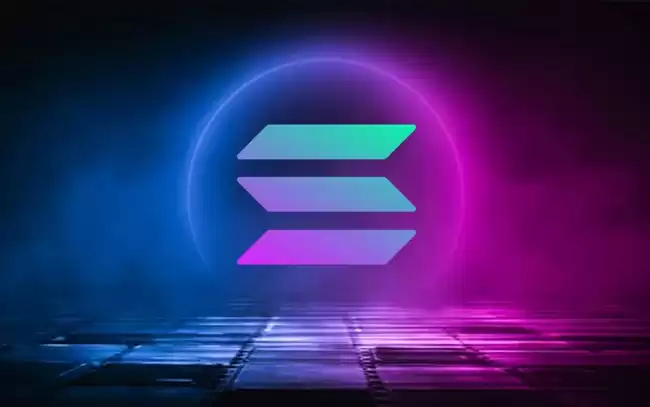
Solana, a cutting-edge blockchain platform, stands as a significant player in the decentralized finance (DeFi) ecosystem. Unlike Bitcoin and other proof-of-work blockchains, Solana utilizes a unique proof-of-history (PoH) consensus mechanism to validate transactions, enabling high transaction throughput and scalability. However, the question of whether Solana can be mined, like Bitcoin or Ethereum, remains prevalent.
In this comprehensive guide, we will delve into the intricacies of Solana mining, examining its distinctive characteristics, unraveling the intricacies of its mining process, and exploring the potential rewards and considerations associated with this endeavor.
Understanding Solana Mining- Proof-of-History (PoH):
Solana's departure from the traditional proof-of-work mining model is based on its implementation of Proof-of-History (PoH). PoH relies on verifiable delays, known as "Elapsed Time," to establish a chronological sequence of events. This mechanism eliminates the need for miners to solve complex computational puzzles, resulting in significant energy savings and enhanced transaction speed and scalability.
- Proof-of-Stake (PoS):
In addition to PoH, Solana incorporates a Proof-of-Stake (PoS) consensus mechanism, which enables token holders to validate transactions based on the amount of SOL they possess. SOL holders who stake their tokens are eligible to receive both staking rewards and potential transaction fees.
- Validators:
Within the Solana ecosystem, validators play a crucial role in maintaining network consensus and processing transactions. To qualify as a validator, individuals or entities must stake a minimum of 250,000 SOL and operate a high-performance server that meets the network's specifications.
- Transaction Processing:
Solana's high transaction throughput, boasting speeds of up to 65,000 transactions per second, is attributed to its parallel processing architecture and the efficiency of its PoH and PoS mechanisms. Transactions are grouped into "batches," each containing multiple transactions, which are processed concurrently by multiple validators.
- Acquire a High-Performance Server:
As a Solana validator, you will require a robust server capable of efficiently handling the intensive computational demands of the network. Specifications include a high-core count (minimum 8 cores), ample RAM (minimum 16GB), and a fast solid-state drive (SSD).
- Purchase or Acquire SOL:
To participate as a validator, you must stake a minimum of 250,000 SOL. You can purchase SOL through cryptocurrency exchanges or obtain it through alternative means, such as trading or earning it as rewards.
- Configure Your Server:
Once you have acquired a suitable server and SOL tokens, you will need to configure your server according to Solana's requirements. This involves setting up the software, establishing firewall rules, and connecting to the Solana network.
- Stake Your SOL:
To become an active validator, you must stake your 250,000 SOL tokens through the Solana software. The staked SOL will be held as collateral, ensuring your commitment and deterring malicious behavior.
- Monitor Your Server:
As a validator, you are responsible for ensuring your server is continuously online and functioning optimally. Performance issues or disruptions can impact your validation rewards and reputation.
- Validation Rewards:
Miners, also known as validators, are rewarded for successfully processing and validating transactions. The rewards are distributed in the form of SOL tokens and are proportional to the amount of SOL staked and the validator's performance.
- Transaction Fees:
In addition to validation rewards, the protocol charges transaction fees for processing transactions on the network. These fees are distributed among all active validators as additional revenue.
- Hardware Requirements:
Operating a Solana validator requires a dedicated and powerful server with high performance and reliability. The cost of acquiring such a server can be substantial, and ongoing maintenance and upgrades will also incur expenses.
- Staking Requirements:
The minimum staking requirement of 250,000 SOL may be a barrier to entry for some potential miners. The cost of purchasing this amount of SOL depends on the prevailing market price, which can fluctuate значительно.
- Competitive Environment:
The field of Solana mining is highly competitive, with numerous validators vying for rewards.
Disclaimer:info@kdj.com
The information provided is not trading advice. kdj.com does not assume any responsibility for any investments made based on the information provided in this article. Cryptocurrencies are highly volatile and it is highly recommended that you invest with caution after thorough research!
If you believe that the content used on this website infringes your copyright, please contact us immediately (info@kdj.com) and we will delete it promptly.
- Super Bowl LX: Coin Toss Trends Point to Tails Despite Heads' Recent Surge
- 2026-01-31 07:30:02
- Aussie Prospector's Ancient Find: Japanese Relics Surface, Rewriting Gold Rush Lore
- 2026-01-31 07:20:01
- US Mint Adjusts Coin Prices: Clad Collector Sets See Significant Hikes Amidst Special Anniversary Releases
- 2026-01-31 07:20:01
- THORChain Ignites Fiery Debate with CoinGecko Over Bitcoin DEX Definitions: A Battle for True Decentralization
- 2026-01-31 07:15:01
- Fantasy Football Frenzy: Key Picks and Pointers for Premier League Round 24
- 2026-01-31 06:40:02
- Cryptocurrencies Brace for Potential Plunge in 2026 Amidst Market Volatility
- 2026-01-31 07:15:01
Related knowledge
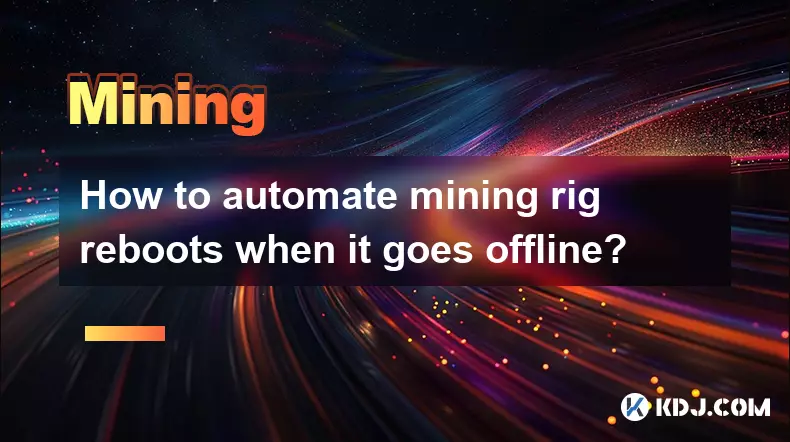
How to automate mining rig reboots when it goes offline?
Jan 23,2026 at 11:00pm
Monitoring System Integration1. Deploy a lightweight agent on the mining rig’s host OS that continuously reports hash rate, GPU temperature, and pool ...
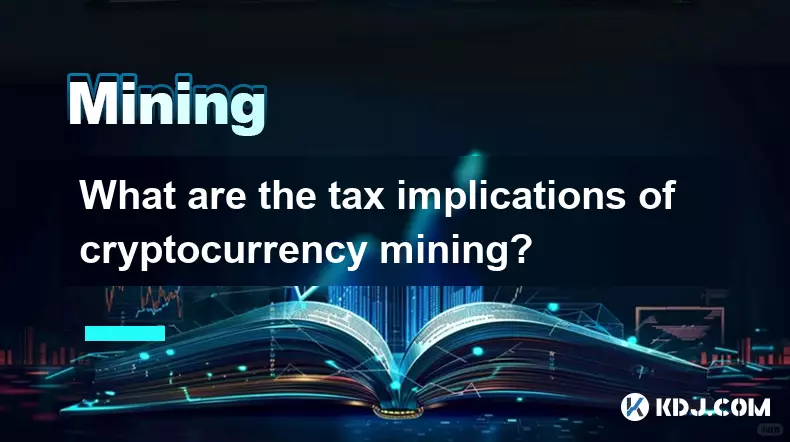
What are the tax implications of cryptocurrency mining?
Jan 23,2026 at 02:40am
Tax Treatment of Mining Rewards1. Cryptocurrency received as a reward for mining is treated as ordinary income by the IRS at the fair market value on ...
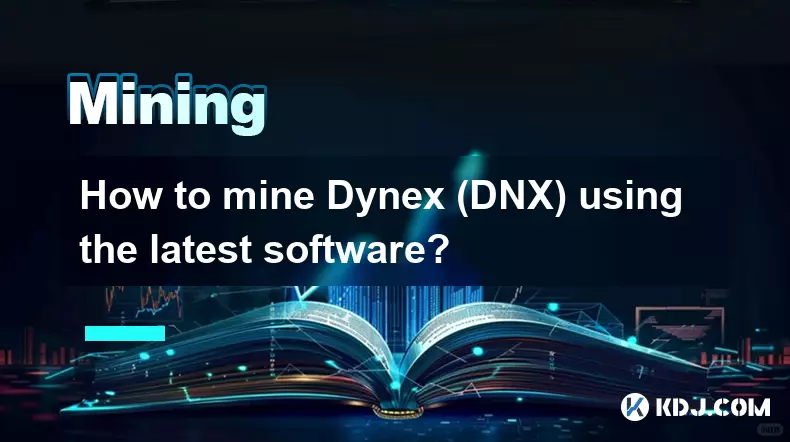
How to mine Dynex (DNX) using the latest software?
Jan 22,2026 at 10:00am
Understanding Dynex Mining Fundamentals1. Dynex (DNX) operates on a proof-of-work consensus mechanism optimized for neuromorphic computing workloads, ...
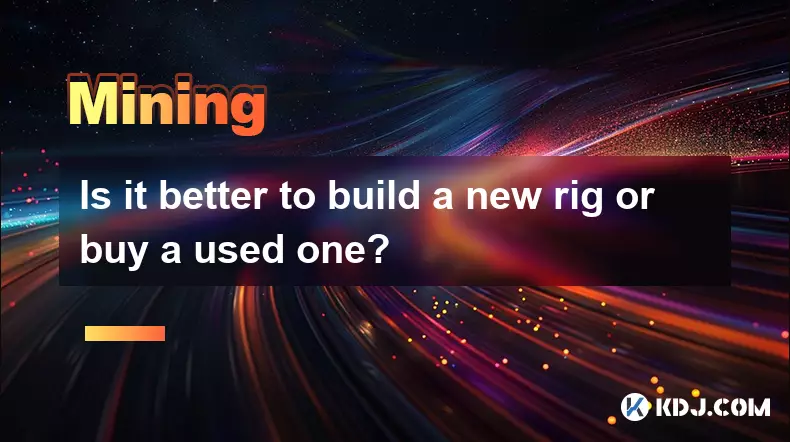
Is it better to build a new rig or buy a used one?
Jan 24,2026 at 10:20pm
Cost Efficiency Analysis1. New mining rigs come with manufacturer warranties, typically covering components for one to three years. This assurance red...
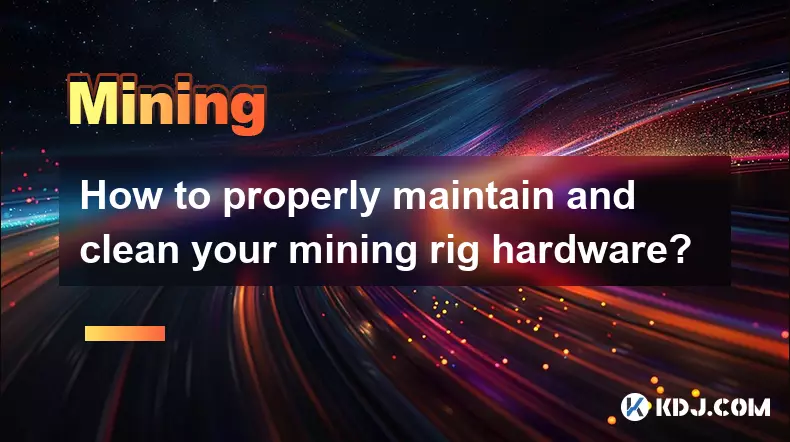
How to properly maintain and clean your mining rig hardware?
Jan 19,2026 at 11:00am
Cooling System Inspection and Optimization1. Dust accumulation inside fans and heatsinks directly reduces thermal dissipation efficiency, leading to h...
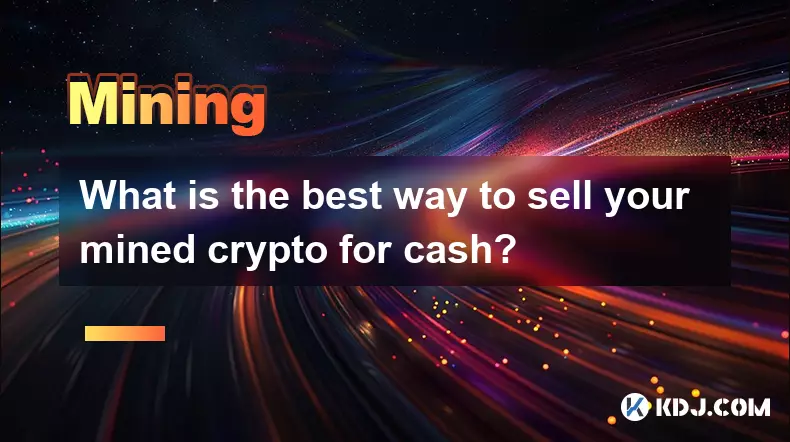
What is the best way to sell your mined crypto for cash?
Jan 20,2026 at 02:59am
Choosing the Right Exchange Platform1. Select an exchange with strong regulatory compliance and a proven track record of secure withdrawals. Platforms...

How to automate mining rig reboots when it goes offline?
Jan 23,2026 at 11:00pm
Monitoring System Integration1. Deploy a lightweight agent on the mining rig’s host OS that continuously reports hash rate, GPU temperature, and pool ...

What are the tax implications of cryptocurrency mining?
Jan 23,2026 at 02:40am
Tax Treatment of Mining Rewards1. Cryptocurrency received as a reward for mining is treated as ordinary income by the IRS at the fair market value on ...

How to mine Dynex (DNX) using the latest software?
Jan 22,2026 at 10:00am
Understanding Dynex Mining Fundamentals1. Dynex (DNX) operates on a proof-of-work consensus mechanism optimized for neuromorphic computing workloads, ...

Is it better to build a new rig or buy a used one?
Jan 24,2026 at 10:20pm
Cost Efficiency Analysis1. New mining rigs come with manufacturer warranties, typically covering components for one to three years. This assurance red...

How to properly maintain and clean your mining rig hardware?
Jan 19,2026 at 11:00am
Cooling System Inspection and Optimization1. Dust accumulation inside fans and heatsinks directly reduces thermal dissipation efficiency, leading to h...

What is the best way to sell your mined crypto for cash?
Jan 20,2026 at 02:59am
Choosing the Right Exchange Platform1. Select an exchange with strong regulatory compliance and a proven track record of secure withdrawals. Platforms...
See all articles










































































